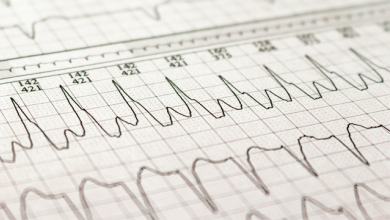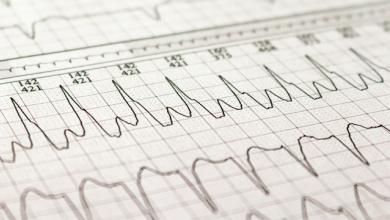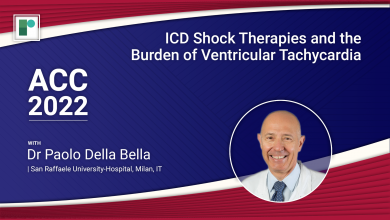Search results
Author(s):
Mohamed Abbas
,
Chris Miles
,
Elijah R Behr
Added:
1 year ago
Author(s):
Sebastiaan RD Piers
,
Katja Zeppenfeld
Added:
3 years ago
Over the last 20 years ventricular tachycardia (VT) ablation has evolved from a treatment modality for selected patients withrecurrent haemodynamically tolerated VT (which can be mapped during ongoing arrhythmia), to a therapeutic option for patients with tolerated and untolerated VT using substrate-based ablation strategies.1 The substrate for VT after myocardial infarction (MI) consists of…
View more
Author(s):
Laurent Roten
,
Matthew Daly
,
Patrizio Pascale
,
et al
Added:
3 years ago
With an ageing population and widespread use of implantable cardioverter-defibrillators, physicians are confronted with an increasing number of patients with symptomatic, drug-refractory ventricular tachycardia (VT). Catheter ablation is an important treatment option in the management of patients with structural heart disease and VT.1,2 In many patients, VT can be successfully ablated from the…
View more
Wide Complex Tachycardia
Author(s):
John B Garner
,
John M Miller
Added:
3 years ago
Article
Author(s):
Pok Tin Tang
,
Duc H Do
,
Anthony C Li
,
et al
Added:
3 years ago
Ventricular arrhythmias remain a major contributor to cardiac morbidity and mortality worldwide, despite ongoing research and implementation of novel therapeutic interventions. Modern management of patients with ventricular arrhythmias requires a multidisciplinary team approach, especially in complex presentations with a background of multiple medical comorbidities.1,2 Such teams may include…
View more
Author(s):
Josef Kautzner
,
Petr Peichl
Added:
3 years ago
Ventricular fibrillation (VF) is a complex arrhythmia that leads invariably to cardiac arrest. Its mechanisms remain largely unclear. Similar to atrial fibrillation, the mother rotor hypothesis is one plausible alternative.1,2 In larger animals, some authors reported that the dominant frequency of VF could be recorded at a junction of the left ventricular posterior wall and the septum.3-6 Others…
View more
Ventricular Tachycardia Isthmus
Author(s):
Ruairidh Martin
,
Meleze Hocini
,
Michel Haissaguerre
,
et al
Added:
3 years ago
Article
Author(s):
Neil T Srinivasan
Added:
3 years ago
Dr Neil Srinivasan (Essex Cardiothoracic Centre, Basildon, UK) evaluates of the role of dynamic substrate changes in facilitating conduction delay and re-entry in ventricular tachycardia (VT) circuits.
Recorded remotely from Basildon, 2020.
View more
Author(s):
Mouhannad M Sadek
,
Robert D Schaller
,
Gregory E Supple
,
et al
Added:
3 years ago
Scar-related reentrant ventricular tachycardia (VT) may be present in a variety of structural heart disease (SHD) phenotypes. In this setting, VT circuits are comprised of viable myocytes separated by fibrosis, allowing for the slow conduction needed to facilitate reentry.1,2 Aetiologies of fibrosis include ischaemic heart disease (IHD), inflammatory conditions, infiltrative cardiomyopathy,…
View more
Author(s):
Paolo Della Bella
Added:
2 years ago
In this short interview from ACC.22, Dr Paolo Della Bella (San Raffaele University-Hospital, IT) joins us to discuss the findings of the PARTITA trial (NCT01547208). The aim of this study was to determine whether the burden of ventricular tachycardia correlates with ICD shock therapies and if the timing of VT ablation affects patient prognosis.
Discussion Points:
Rationale behind this trial
…
View more














